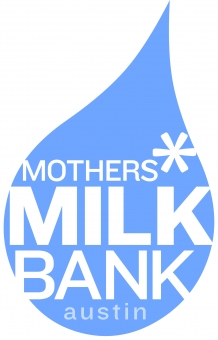- Education Topics
- Achievement Gap
- Alternative Education
- American Education Awards
- Assessment & Evaluation
- Education during COVID-19
- Education Economics
- Education Environment
- Education in the United States during COVID-19
- Education Issues
- Education Policy
- Education Psychology
- Education Scandals and Controversies
- Education Reform
- Education Theory
- Education Worldwide
- Educational Leadership
- Educational Philosophy
- Educational Research
- Educational Technology
- Federal Education Legislation
- Higher Education Worldwide
- Homeless Education
- Homeschooling in the United States
- Migrant Education
- Neglected/Deliquent Students
- Pedagogy
- Sociology of Education
- Special Needs
- National Directories
- After School Programs
- Alternative Schools
- The Arts
- At-Risk Students
- Camps
- Camp Services
- Colleges & Universities
- Counties
- Driving Schools
- Educational Businesses
- Financial Aid
- Higher Education
- International Programs
- Jewish Community Centers
- K-12 Schools
- Language Studies
- Libraries
- Organizations
- Preschools
- Professional Development
- Prom Services
- School Assemblies
- School Districts
- School Field Trips
- School Health
- School Supplies
- School Travel
- School Vendors
- Schools Worldwide
- Special Education
- Special Needs
- Study Abroad
- Teaching Abroad
- Volunteer Programs
- Youth Sports
- For Schools
- Academic Standards
- Assembly Programs
- Blue Ribbon Schools Program
- Educational Accreditation
- Educational Television Channels
- Education in the United States
- History of Education in the United States
- Reading Education in the U.S.
- School Grades
- School Meal Programs
- School Types
- School Uniforms
- Special Education in the United States
- Systems of Formal Education
- U.S. Education Legislation
- For Teachers
- Academic Dishonesty
- Childcare State Licensing Requirements
- Classroom Management
- Education Subjects
- Educational Practices
- Interdisciplinary Teaching
- Job and Interview Tips
- Lesson Plans | Grades
- Professional Development
- State Curriculum Standards
- Substitute Teaching
- Teacher Salary
- Teacher Training Programs
- Teaching Methods
- Training and Certification
- For Students
- Academic Competitions
- Admissions Testing
- At-Risk Students
- Career Planning
- College Admissions
- Drivers License
- Educational Programs
- Educational Television
- High School Dropouts
- Higher Education
- School Health
- Senior Proms
- Sex Education
- Standardized Testing
- Student Financial Aid
- Student Television Stations
- Summer Learning Loss
Mothers' Milk Bank at Austin

Basic Information
Address: 2911 Medical Arts St, Ste 12
Austin, TX 78705
Phone Number: (512) 494-0800
Fax Number: (512) 494-0880
Email: info@milkbank.org
Director: Kim Updegrove
Additional Information
Clearances Required: No
Background Check: No
Population Served: premature and ill infants
Ages for Volunteer: any
Hours of Service: 9-5 Monday-Thursday, 9-1 Friday
Days of Service: Monday - Friday
Mission Statement:
The Mothers' Milk Bank at Austin is a non-profit organization whose mission is to accept, pasteurize and dispense donor human milk by physician prescription, primarily to premature and ill infants.
Program History:
The Mothers' Milk Bank at Austin, follow strict screening, processing, and testing guidelines to ensure that banked human milk is safe. They select potential donors using a multi-step screening process similar to that used at blood banks. After being collected, donated milk is pooled and pasteurized to kill any bacteria or viruses.
Only a small percentage of the milk's beneficial properties are destroyed by the pasteurization process. Research shows that the method of pasteurization used at the Mothers' Milk Bank at Austin preserves approximately 70% of the immune factors that help protect babies from illness. Before pasteurized milk is dispensed, bacteriological testing is done to ensure its safety.
Additional Information:
Why it matters
- One in eight babies is born preterm.
- Human milk is especially important for premature or sick babies, who are at 10 times the risk for devastating intestinal infections if they are fed formula instead of human milk.
- Fewer than half of moms who deliver a baby prematurely are able to provide their babies with breast milk. Through donor milk, these preterm babies are still able to receive the benefits of breast milk to help them grow and thrive.
- Some mothers of preterm and sick babies have health complications of their own or may need medications that prevent them from breastfeeding. Yet the babies of these moms are able to get many of the life-saving benefits of breastfeeding through donated human milk.
- Human milk contains antibodies to fight disease and infection, and also protects against allergies.
- Human milk contains growth hormones that help babies develop.





